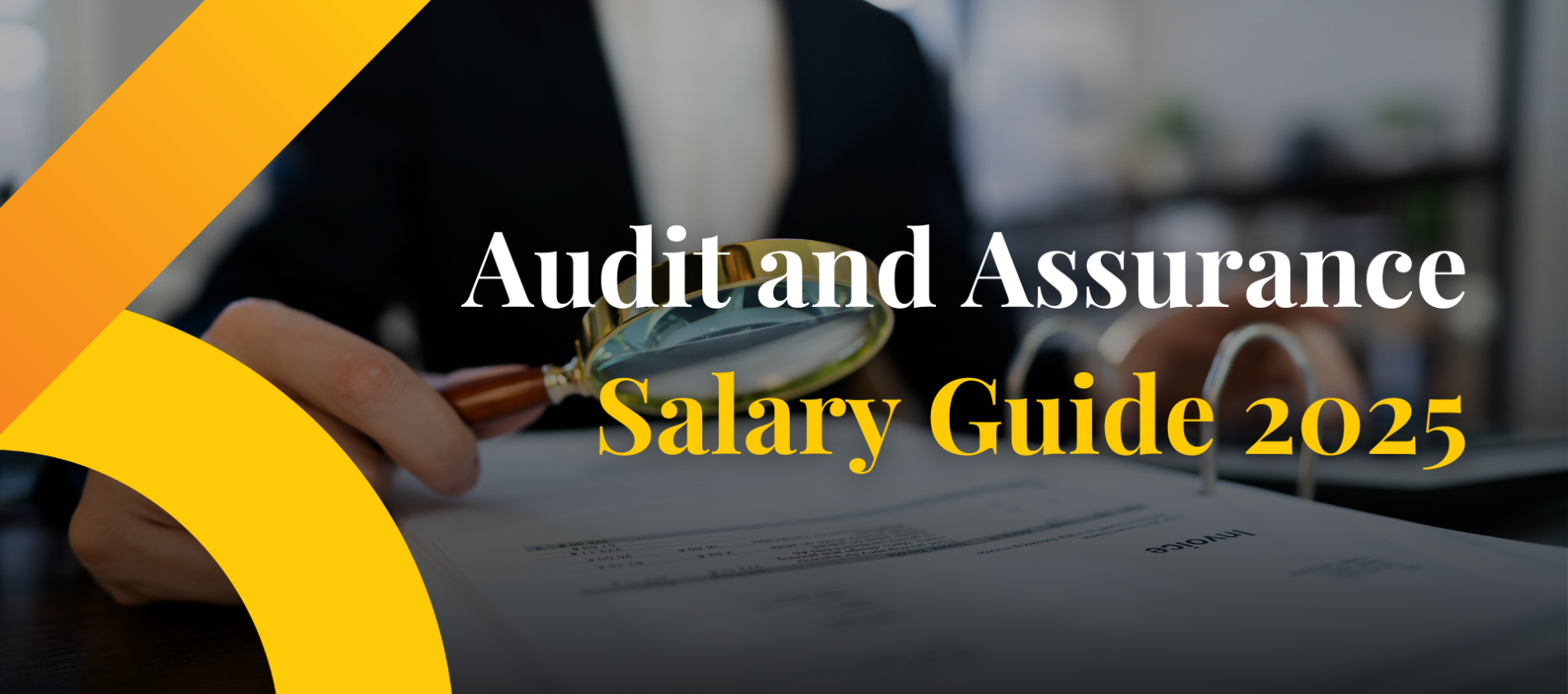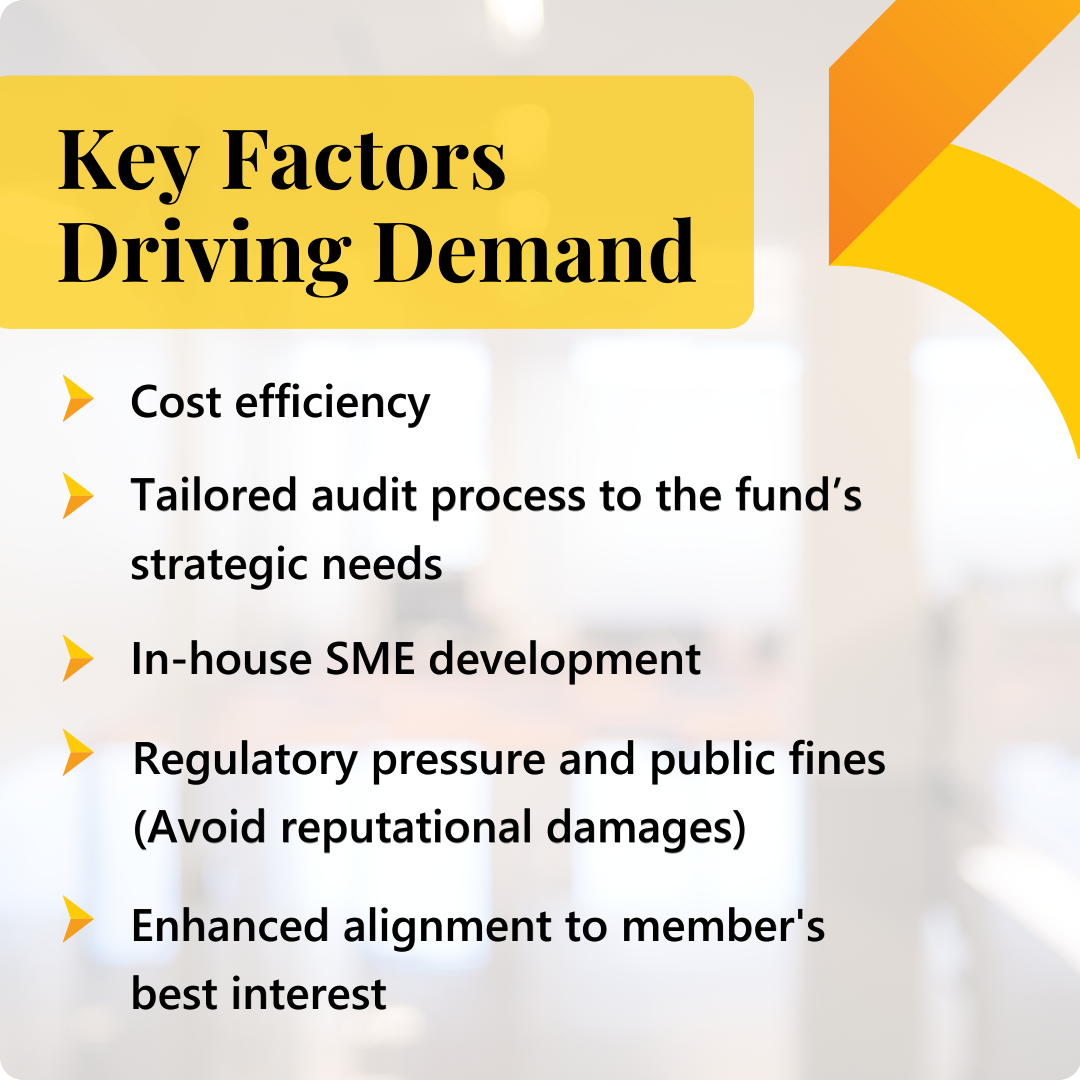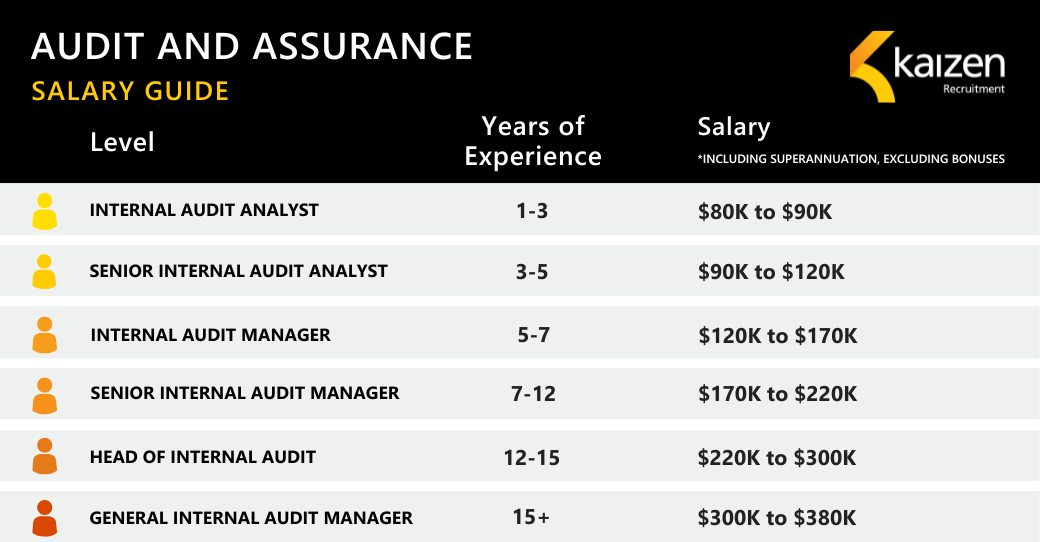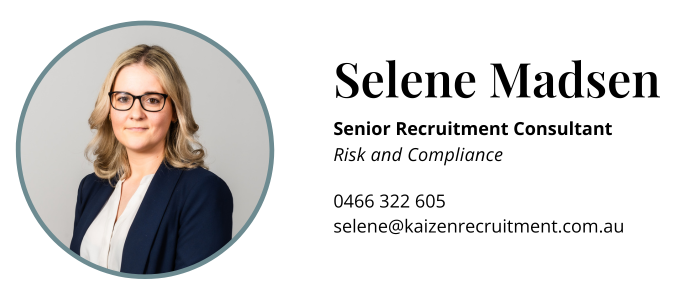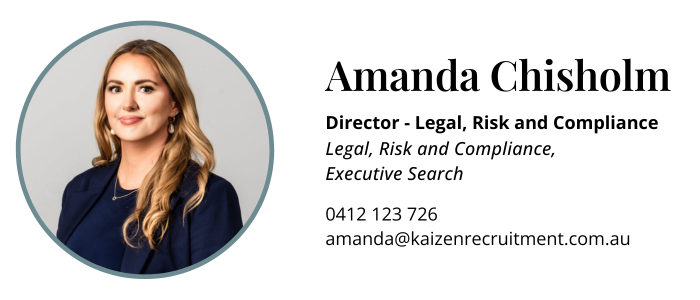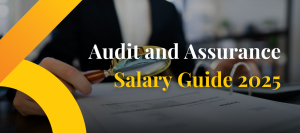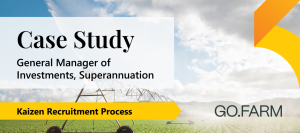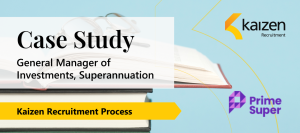Internal Audit and Assurance Salary Guide 2025
Kaizen Recruitment uses in-depth market knowledge to help guide and consult our candidates and clients within the financial services industries. To ensure this data reflects recent changes and trends, our Senior Recruitment Consultant, Selene Madsen, gathers insights from our network of risk and compliance professionals.
Introduction
Kaizen Recruitment has observed that the internal audit landscape in Australia is undergoing a significant transformation, particularly within the superannuation sector. As superannuation funds strive to enhance efficiency, align with regulatory demands, and better serve their members, a notable shift is occurring—moving away from outsourced consultants towards developing robust in-house teams.
This evolution not only influences the way funds operate but also impacts the career opportunities and earning potential for professionals within assurance and internal audit.
Supply Vs. Demand
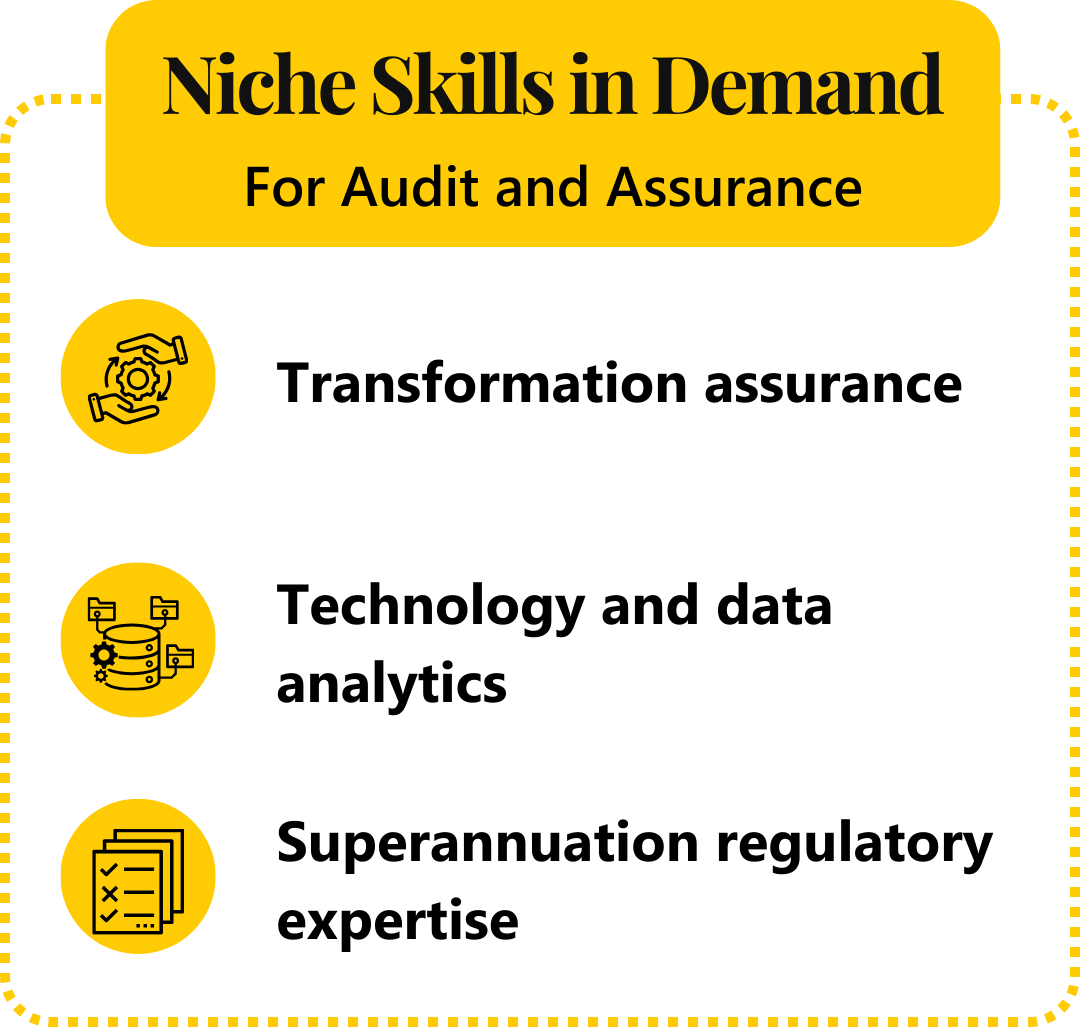
This, combined with increased demand for niche skill sets—such as transformation assurance, technology and data analytics, and superannuation regulatory expertise—as well as the need for high-calibre senior candidates to support large, multi-year transformations and mergers, has placed upward pressure on salaries. Demand has also been fueled by regulatory penalties and a heightened focus on building strong internal audit capabilities to prevent future compliance issues.
Internal Audit Salary and Market Update
Superannuation funds are increasingly building in-house internal audit teams for several compelling reasons. One key driver is cost efficiency—internal teams can reduce reliance on external consultants, lowering operational expenses and ultimately benefiting fund members. Additionally, in-house teams provide greater control and responsiveness, allowing funds to tailor audit processes to their specific needs and adapt quickly to regulatory changes or emerging risks.
Another significant factor is expertise development. By investing in internal capabilities, superannuation funds can attract and retain skilled professionals who understand the intricacies of their operations. This approach fosters a deeper alignment with the fund’s strategic goals and enhances the quality of audits.
Regulatory pressures also play a role. APRA has emphasised the importance of robust governance and oversight, encouraging funds to internalise audit functions to meet stricter compliance standards. Finally, in-house teams enable better alignment with member interests, ensuring that audit processes support long-term objectives like sustainability and ethical investment practices.
*The figures above relate to the financial services industry and reflect base salary including superannuation and do not take into account bonuses.
What do internal audit professionals cover in their role?
Internal audit professionals in financial services typically hold the following responsibilities:
Technical Expertise
- Identifying and evaluating financial, operational, and compliance risks, and ensuring effective risk management strategies are in place
- Testing and reviewing the effectiveness of internal control systems to safeguard assets and maintain accurate financial reporting.
- Monitoring adherence to industry regulations, standards, and internal policies to avoid legal or financial penalties.
- Reviewing financial records, transactions, and systems to detect errors, fraud, or inefficiencies.
- Conducting investigations into suspected fraud, misconduct, or compliance breaches within the organisation
Stakeholder Engagement
- Recommending process improvements to enhance operational effectiveness and reduce costs.
- Preparing detailed reports with recommendations for management and the board to address identified risks and issues.
- Working with other teams, such as risk management and compliance, to align strategies and processes.
Subject Matter Expertise
- Ensuring that audit activities align with the organisation’s strategic objectives.
- Assessing IT systems, cybersecurity measures, and data management practices to mitigate technology-related risks .
Career Pathways
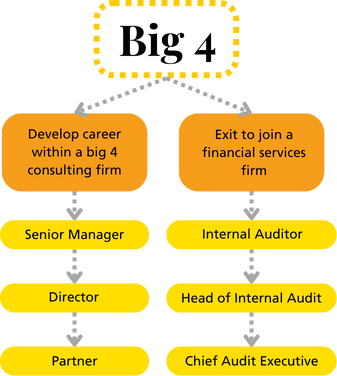
Kaizen has noted a key theme regarding demand from industry clients looking to hire internal audit professionals at the Senior Consultant and Manager level. Candidates at this level have broad experience, project management and stakeholder management skills allowing them to step into dedicated audit, risk, compliance or accounting roles. At this level, candidates see a significant salary increase as opposed to candidates at the Senior Manager or Director levels who find themselves making lateral salary moves.
There are very few roles that provide access to the entirety of an organisation. This is beneficial as internal auditors are visible to many senior stakeholders, which allows them to create and grow their professional brand. Many senior executives have spent time in Internal Audit to hone their skills in relationship management, risk judgement, business control and organisational oversight. Internal Auditors often move into management, project and senior leadership roles, depending on their experience and subject matter expertise.
Conclusion
Recruiting for superannuation internal audit positions at the 3–5-year level has been the most challenging due to a number of factors. Superannuation faces competition from banking and insurance to attract and retain this talent. These organisations lack Analyst and Senior Analyst titles within their hierarchy, thus offering candidates Manager titles despite this being the most junior position within their teams, which can be extremely attractive to consulting candidates. Salaries within banking and insurance tend to be 10-15% higher at the junior level, with a bonus component of 10-20%.
The shift towards in-house audit teams in superannuation funds has created new opportunities, Kaizen Recruitment continues to partner with these organisations as they seek professionals who can provide tailored insights and align closely with their strategic goals. This evolving landscape is driving demand for high quality candidates and will continue into 2025.
DOWNLOAD SALARY GUIDE AS PDF
Author: Selene Madsen, Senior Recruitment Consultant for Risk and Compliance
Get in Touch
Based in Melbourne and Sydney, Kaizen Recruitment specialises in financial services recruitment across funds management, wealth management, superannuation, investment consulting and insurance. If you’d like to discuss candidate career drivers and the current state of the market within the financial services recruitment landscape, feel free to reach out to us with your details below.
Like what you see?
Please feel welcome to join
Kaizen Recruitment’s mailing list
